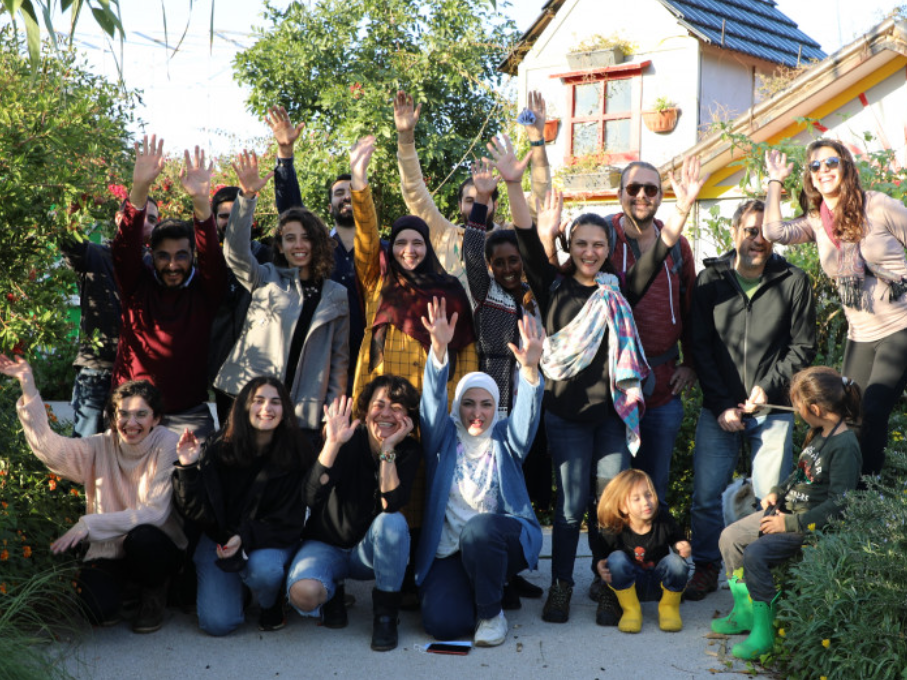As the world of learning continues to transform, numerous advancements such as increased internet access and speed, as well as the unique ways which individuals consume information, are prompting educational providers to change their approach. These shifts were further expedited by the pandemic, and will impact the trajectory of the educational industry moving forward.
Kashida, an award-winning learning experience design and edtech services company, based out of Lebanon, is ahead of the curve. Since 2011, they have adopted a human-centric approach, to help everyone learn.
We sat with Raneem Mourad (RM), Managing Director at Kashida, to discuss how the world of education continues to transform, and how adaptive, tailored learning models are the future.
BDD: Can you tell us a bit about Kashida? What differentiates your approach from others in the market?
RM: Kashida provides a full suite of services covering the entire digital education lifecycle. This includes learning strategy, learning experience design, digital asset production and delivery.
Our key differentiator is that we are keen on providing our clients with an end-to-end learning solution based on the desired experiences, designed to yield the most impactful results for their learners and their business as a whole. With this approach we guarantee that all solution components including the EdTech being used, all contribute to delivering the intended learning experience and ultimately the learning outcomes.
BDD: Can you share what your role is as a company?
RM: We like to think of ourselves as learning experience designers. We have developed a proprietary process of designing the right learning experiences for the selected target audience, which allows us to work on any subject, with any type of learner, and adopt multiple delivery methods, whether fully self-paced or instructor-led or a mix of both.
Our role is threefold. While keeping the Learning Experience on center stage, we do not lose sight of all the other components that contribute to an effective learning solution. As such, we are Visual Designers, ensuring that each learning experience goes through a rigorous graphic design phase with its own visual style and identity to ensure that the learning is customized to the target audience. We are Producers, producing a wide variety of learning components depending on the learning strategy and target audience Including videos, animations, interactive courses, infographics, games, worksheets, and much more. And we are Edtech Experts, supporting clients with delivery platforms, either by creating their own bespoke platform using Open edX, or managing and enhancing their existing platform.
On the other hand, from an internal perspective, we have always been a people-first organization. We’ve always supported flexibility at the workplace, remote work and policies that support working mothers and parents in general. This is one of the differentiators we’re most proud of and continue to prioritize in our work.
BDD: So what market needs did you identify, that you are answering?
RM: Although Kashida was founded in 2011, two of the founding partners had been working in the eLearning industry since 2004. The industry at the time provided very specific solutions around digital learning, mainly by using authoring tools to deliver content in a formatted and interactive way. However, with the growth of the digital age, the internet speed, and the way people interacted with content online, learners expect to be choiceful about what content they wanted to view and how they wanted to use it. It was no longer enough to just deliver the content in a digital way.
The key need that became apparent was that online learning or digital learning had to be customized to the needs of different learners. Since 2012, we have been finetuning a process that allows us to work with our clients to identify and create the best learning approach based on the needs of the target learners as well as the subject area. This meant that each learning experience was different and could now include a multitude of different learning components delivered through a variety of online tools be it through an LMS, an app, a website, on mobile and even offline. This allows us to work with L&D professionals but also people who have no learning background and want to build solutions to further enhance their team’s/beneficiaries’ capabilities.
BDD: How has the pandemic transformed the realm of education?
RM: In the realm of education, we have to differentiate between Academia (K-12, University, Post-graduate), and Continued and/or Professional education. We can all see the changes happening in Academia whereby most universities have robust online certifications now, some even have fully online accredited programs. We foresee this continuing to grow and follow a more blended approach as it develops; however, I do not believe we will ever lose the physical academic spaces and face-to-face teaching within the academic space.
On the other hand, for continued and/or professional education, this is where we foresee the biggest evolution. What the pandemic did to the realm of education and particularly online education had two main effects:
- Everyone saw the effectiveness of online education, so the previous non-believers were officially converted. They saw that online education can be not only effective but also quite efficient in terms of cost and time.
- Everyone was extremely innovative. People had to use whatever tools they had on hand, from popular apps like WhatsApp to collaboration tools like Microsoft teams. This meant that the whole industry got a bit of a shake-up, especially big traditional eLearning providers who couldn’t offer the same old solution anymore. These bottom-up innovations gave very valuable insight to the industry and a true understanding of how end users envision themselves delivering and receiving online learning.
Both above reasons resulted in many new startups and solutions related to e-learning delivery, which I see as a very positive effect on the e-learning industry.
BDD: What key shifts and trends will we be seeing?
RM: Data has always played a crucial role in the learning industry, as a tool for measuring solution effectiveness and a source of valuable insight. Now, however, with the advancements in AI, ML and big data tech, data is set to play a pivotal role in the evolution of the industry.
We will be seeing more of:
- Collaborative learning
- Peer-to-peer social learning
- More mobile learning and more tools that facilitate this
- A global move towards online accreditations using technologies like blockchain
- And of course, we cannot forget real data driven personalized learning through the use of AI
- Content remains Queen!
BDD: Is there an exciting project you can share with us?
RM: Honestly, we really enjoy every project we develop, because each project comes with its own challenges and objectives. Hence, it is difficult to pinpoint just one project that was exciting. For example, when we worked on the SafeSpace platform, a cyber safety awareness platform, with the Ministry of Communication and Information Technology in Qatar, the most exciting aspect of that project was the creation of the content framework, working with subject matter experts from different fields to identify and design the entire ecosystem of the project. This included designing the User Interface, creating custom technology functionalities, and producing over 450 learning components from videos and animations to infographics and games. With the Riyali platform, on the other hand, we are really proud of being involved in its evolution over several years. This includes creating new online courses but also blogs, podcasts, nation-wide competitions and more. Other projects such as OSN required on location shoots, multiple types of learning components and working directly with the sales team to achieve an impactful onboarding program. Finally, projects we work on with development organizations such as Oxfam, Amnesty, Ahel, and UN agencies like UNDP and OHCHR, give us a deep sense of gratitude to be able to help create impactful solutions for on-the-ground beneficiaries.
So, as you can see, each project is exciting for us, and challenges our creativity and solution mindset to achieve the most impactful results.
BDD: Being based in Lebanon, how has being part of the BDD community impacted your business?
RM: Being part of the BDD community is very inspirational, especially in the current state of Lebanon. Once you’re at the office, you feel that everything is ok, because you interact daily with young professionals, motivated people, and a functioning ecosystem that gives some hope to the future of the country. It also creates a sense of belonging to the community of people in Lebanon trying to innovate and create change.
To learn more about Kashida, visit: https://kashida-learning.com/




